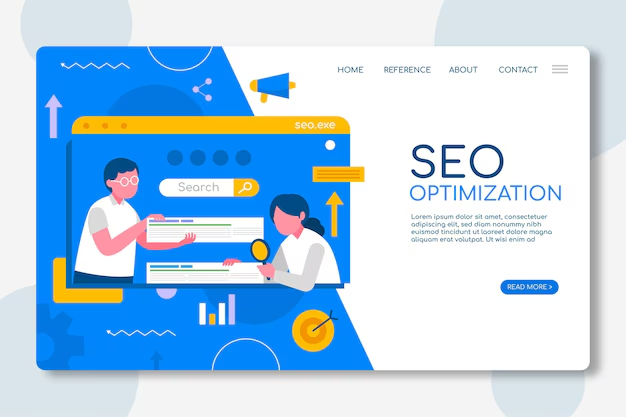Starting a blog is an exciting journey, but choosing the right blogging platform is a crucial first step that can significantly impact your blogging experience and success. With so many platforms available, each offering different features, customization options, and levels of control, selecting the one that fits your needs can feel overwhelming. In this guide, we’ll walk you through the key factors to consider when choosing the best blogging platform for your specific needs, helping you make an informed decision.
1. Identify Your Blogging Goals
The first step in choosing a blogging platform is to clearly define your goals. Are you starting a blog as a hobby, or are you aiming to build a professional online presence? Do you plan to monetize your blog through ads, affiliate marketing, or selling products? Understanding your objectives will help you identify the right platform that aligns with your needs. For instance:
- Personal or Hobby Blogging: Platforms like WordPress.com or Blogger are user-friendly and great for hobbyists who want a quick and easy setup.
- Professional Blogging: If you plan to monetize your blog or create a custom design, WordPress.org or Squarespace might be better suited.
- Business Blog: If you’re a business looking to build brand awareness, platforms like WordPress.org and Wix offer extensive customization options and e-commerce capabilities.
2. Consider the Level of Control and Customization
Different blogging platforms offer varying levels of control and customization. For example:
- Self-Hosted Platforms: WordPress.org provides complete control over your blog, allowing you to customize every aspect of your website using themes and plugins. However, this comes with the responsibility of managing your hosting and website maintenance.
- Hosted Platforms: Medium and WordPress.com handle all the technical aspects, such as hosting and security, but offer less flexibility in terms of design and functionality. These platforms are ideal if you want a simpler setup and don’t need extensive customization.
Think about how much control you want over your blog’s design and functionality when selecting a platform.
3. Evaluate Ease of Use
When starting out, ease of use can be a critical factor, especially if you’re new to blogging. Look for a platform that offers an intuitive user interface, drag-and-drop functionality, and easy content management. Here’s how some popular platforms stack up:
- WordPress.org: Offers a learning curve but provides extensive online resources and community support.
- Wix: Known for its drag-and-drop website builder, making it easy for beginners to create beautiful websites without coding knowledge.
- Squarespace: Provides a user-friendly interface with design-focused templates, suitable for beginners and creatives.
4. Assess Customization and Design Flexibility
The design of your blog can play a major role in attracting and retaining readers. Some platforms provide more customization options than others, enabling you to create a unique and visually appealing blog. Consider these options:
- WordPress.org: Offers thousands of themes and plugins, making it highly customizable and versatile.
- Squarespace: Known for its beautiful design templates and easy customization, ideal for creatives who want a polished look without extensive coding.
- Medium: Focuses on clean, minimalist design, allowing bloggers to focus on writing, but lacks the ability to personalize the overall look and feel of the site.
5. Look into SEO and Monetization Options
If your goal is to drive traffic to your blog or monetize it, SEO and monetization capabilities should be high on your priority list. Some platforms provide better SEO tools and opportunities for generating revenue:
- WordPress.org: Offers extensive SEO plugins like Yoast SEO, All in One SEO and Rank Math, allowing you to optimize your content for search engines. It also supports various monetization methods, including ads, affiliate marketing, and online stores.
- Medium: Medium’s Partner Program allows writers to earn money based on reader engagement, but it’s limited compared to other monetization methods.
- Wix: Includes built-in SEO tools, but is not as robust as WordPress.org. Suitable for small businesses and those looking for easy-to-use SEO features.
Choosing a platform with strong SEO tools can help your blog reach a wider audience and generate more income over time.
6. Consider Scalability
As your blog grows, you may need additional features and capabilities to accommodate your expanding audience. Choosing a platform that can scale with your needs is important for long-term success:
- WordPress.org: Scales easily with plugins and themes, making it ideal for blogs that grow into larger websites or online businesses.
- Wix and Squarespace: Suitable for small to medium-sized blogs but may have limitations when it comes to scaling into more complex websites.
7. Pricing and Budget
Your budget will play a role in deciding which platform is right for you. Some platforms are free but may require additional costs for premium features, themes, or plugins:
- WordPress.org: Free to use but requires payment for hosting and a domain name. Additional plugins and themes may have a cost.
- WordPress.com: Offers free and paid plans, with premium features available at higher pricing tiers.
- Squarespace: Monthly subscription-based, with pricing plans that include hosting and support.
- Blogger: Free to use with a blogspot.com domain, but requires a custom domain purchase for more professional branding.
Evaluate your budget and choose a platform that offers the best value for your investment.
Conclusion: Find the Best Blogging Platform for Your Unique Needs
Choosing the best blogging platform involves considering factors such as control, customization, ease of use, SEO, scalability, and budget. Whether you opt for a self-hosted solution like WordPress.org or a hosted option like Squarespace or Medium, ensure that the platform aligns with your goals and long-term vision for your blog. Take the time to explore different platforms, experiment with their features, and make a choice that best supports your blogging journey. With the right platform, you’ll be well on your way to creating a successful and engaging blog that resonates with your audience.






